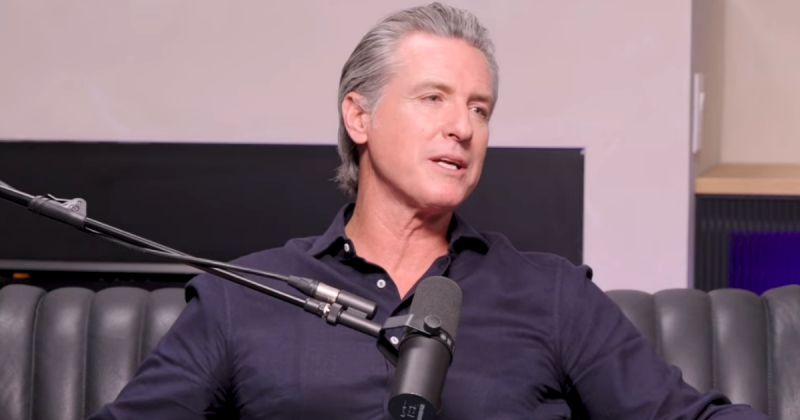California Gov. Gavin Newsom (D) has drawn criticism from conservatives after sharing a story about his early life during a recent appearance on the podcast “All The Smoke,” hosted by former NBA players Matt Barnes and Stephen Jackson.
Newsom described his mother working “two and a half jobs” to support the family while he “was out there just kind of raising myself.”
He recalled simple meals like macaroni and cheese and Wonder Bread, suggesting these experiences influenced his upbringing.
The remarks quickly sparked backlash online.
Critics emphasized that Newsom’s father, William Newsom, was a judge and attorney for the Getty family, one of California’s wealthiest and most influential dynasties.
William Newsom managed the Getty family trust, advised on investments and even helped deliver ransom funds during the kidnapping of John Paul Getty III.
Conservatives argued that, despite any personal hardships, Gavin Newsom benefited from family connections and substantial social and financial capital.
Social media attention surged after former investment banker John LeFevre shared the podcast clip on X, where it drew millions of views, according to the Daily Mail.
Commenters highlighted the contrast between Newsom’s “hardscrabble” narrative and his privileged upbringing, which included private schooling and early business ventures supported by well-connected friends.
One notable example is Newsom’s wine shop, launched with funding from William Getty, a childhood acquaintance, receiving an initial investment between $7,500 and $15,000.
Later ventures also benefited from capital provided by the same network.
Mediaite noted that Newsom grew up in Larkspur, a Marin County community with a median household income far above the national average, further raising questions about the accuracy of his portrayal of financial struggle.
Conservative voices on social media and in podcasts, including Adam Carolla, criticized the governor’s storytelling as “cringe,” arguing that it overstated hardship to appeal to audiences culturally or politically distant from his elite background.
Rep. Wesley Hunt (R-TX) also weighed in, suggesting that Newsom “code-switched” his accent and demeanor during the interview to resonate with black listeners.
Hunt described the approach as patronizing, claiming it exemplified the disconnect between elite politicians and ordinary Americans.
He argued that such performances often obscure the reality of privilege while attempting to present a narrative of struggle.
In response, Newsom’s office emphasized that he was primarily raised by his mother following his parents’ divorce when he was three. She worked multiple jobs to support him and his sister.
While acknowledging the family’s prominent connections, spokespeople said Newsom’s early years involved navigating challenges typical of many children in single-parent households, including reliance on student loans and partial scholarships for higher education.
The controversy highlights broader debates over political narratives and the presentation of personal history.
Critics contend that portraying a modest upbringing while benefiting from elite networks undermines credibility, especially when leaders aim to connect with audiences far removed from their socio-economic realities.
At the same time, Newsom’s defenders point to genuine hardships tied to living in a single-parent household, arguing that nuanced realities often get overlooked in online reactions.
As the clip continues to circulate, the debate underscores how politicians’ personal stories are dissected in the digital age, where viral moments can rapidly amplify criticism and spark questions about authenticity, privilege and relatability.
WATCH:

